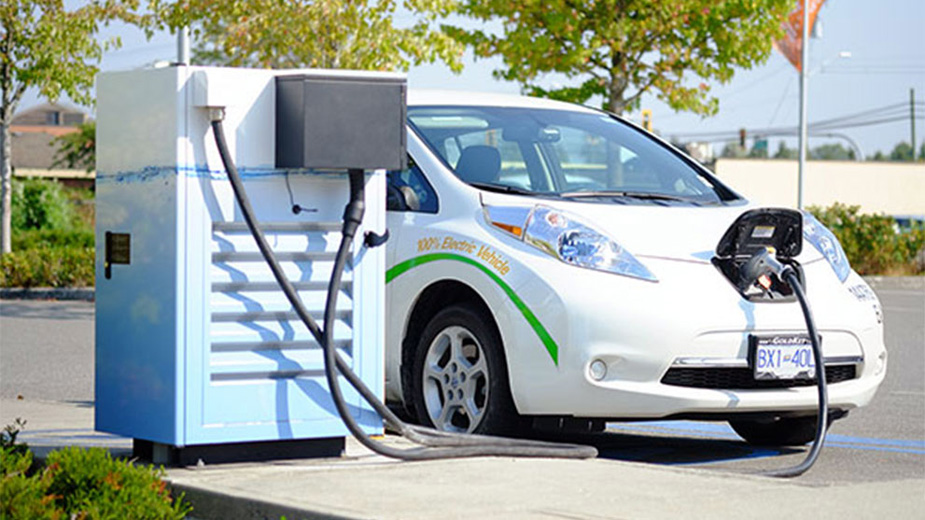Electric Vehicles Will Be Ubiquitous by 2030
If you own, work, invest, lend or supply anywhere in or around the automotive industry, there is a tsunami heading your way. It’s called the Electric Vehicle. And it’s going to cause tremendous disruptive in quite a few sectors.
Electric vehicles, or EVs, account for only 1% of all new vehicle products. But, that’s about to turn up rapidly.
Over the past year or so, global auto manufacturers have announced a collective commitment of more than $90 billion to electrify their respective fleets. And with that type of investment committed, don’t bet on the internal combustion engine having much-staying power.
Some automakers have been very aggressive with their electrification programs.
Volvo, for example, has announced that by 2019, every single model that it sells will either be all-electric or a hybrid. Volkswagen, the largest automaker in the world, plans by 2030 – that’s only 12 years away – to have electrified all 300-plus of its global car models.
And governments are more aggressive in their electric vehicle mandates. China, for example, is pushing the most aggressive mandates for electric vehicle adoption. Given the size of the Chinese market, those mandates, and similar ones in California and Europe, it will pressure every automaker to ramp up EV production schedules.
Electric vehicles command such a tiny market share for one reason: cost. Even with government subsidies, EVs still cost a premium to their gas-guzzling cousins. But that barrier is rapidly coming down.
A recent report by Bloomberg New Energy Finance and several other respected studies as well forecast the fall of EV prices more quickly than was predicted. The consensus estimate appears to be that by no later than 2030, the EV will be cost-competitive with petroleum-powered cars.
And when that happens, and assuming we achieve much longer battery range and much quicker battery charging (and all indications suggest that we are rapidly getting there) that might mean the end of internal combustion engines.Not just for cars, but for trucks and other vehicles as well.
So if the electric vehicle tsunami is coming ashore in as few as 12 years, who needs to start making adjustments and preparations today?
The oil industry and its supply chain. One-third of global oil demand is for cars. But, electrification will also be coming to trucks, buses and ships, increasing the effect. And adding to the misery of the oil industry, are the rapidly advancing and growing renewable energy sources.
Auto repair centers. The Chevrolet Bolt, its newest electric car, has just 24 moving parts compared to 149 in a Volkswagen Golf diesel. So that’s 125 fewer parts that might need to be repaired or replaced. It will be a huge revenue loss to the auto repair industry, as well as its supply chain.
Auto services centers. A big part of the revenue stream in this sector is from preventive vehicle maintenance, such as oil changes and spark plug and filter replacements. That revenue will be completely lost with the EV.
Car dealerships. Vehicle service is a big part of a dealer’s profitability. For reasons mentioned, much of that profitability will be going away. But, electric vehicles will also be owned longer after purchase, because with far fewer maintenance problems, people will not be trading their cars in as quickly to buy new ones. So there will also be downward pressure on new car sales.
And as with the oil industry, car dealers have other sales problems coming as well such as the growing shift to the “shared economy.” Once autonomous driving technology takes the human driver out of the electric vehicle fleets of Uber, Lyft and others, car sharing makes much more economic sense.
Gasoline stations. Believe it or not, gas stations are fairly safe. The reason? It seems this industry has been preparing for change for many years.
It used to be, these businesses sold oil, gasoline and repair services. Then came stations that sold only gas and a few conveniences. Now, they are fully becoming fast-food and convenience stores, which sell gas almost as an afterthought. Besides, they will be the perfect locations for battery charging once fast charge technology is fully matured.
Who will benefit the most from EVs? We all will. Every single one of us with more healthful air, cleaner water and a more sustainable environment. All are being severely damaged today by the massive amounts of transportation pollution. For our sake, the fully electric vehicle, fast charged through clean energy sources, can’t get here fast enough.
Copyright 2024 The Business Journal, Youngstown, Ohio.



